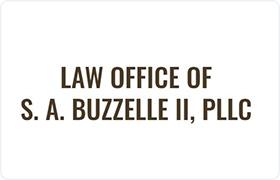El Mirage Collection Lawyer, Arizona, page 3
Sponsored Law Firm
-
 x
x

Click For More Info:
-
Law Office of S.A. Buzzelle II, PLLC
14050 N 83rd Avenue Suite 290 Peoria, AZ 85381» view mapBankruptcy & Debt Law Your Trusted Bankruptcy Attorney
If you are in need of legal services for matters relating to bankruptcy and divorce, rely on Law Office of S. A. Buzzelle II, PLLC in Peoria, AZ.
800-873-4991
Andrea Landeen
Construction, Real Estate, Collection, Bankruptcy & Debt
Status: In Good Standing Licensed: 18 Years
Rachael Blyth Eisenstadt
Construction, Litigation, Defense Contracts, Collection
Status: In Good Standing Licensed: 12 Years
Michael R Scheurich
Real Estate, Collection, Bankruptcy, Bankruptcy & Debt
Status: In Good Standing Licensed: 45 Years
Michael R Scheurich
Commercial Real Estate, Litigation, Collection, Bankruptcy & Debt
Status: In Good Standing Licensed: 45 Years
Kenneth W Seidberg
Employment Discrimination, Collection, Bankruptcy & Debt, Personal Injury
Status: In Good Standing Licensed: 51 Years
Lydia Reed Tulin
Litigation, Collection, Commercial Real Estate
Status: In Good Standing Licensed: 15 Years
Lydia Reed Tulin
Real Estate, Collection, Litigation, Commercial Real Estate
Status: In Good Standing Licensed: 15 Years
 Stanley A. Buzzelle II Peoria, AZ
Stanley A. Buzzelle II Peoria, AZ Practice AreasExpertise
Practice AreasExpertise
